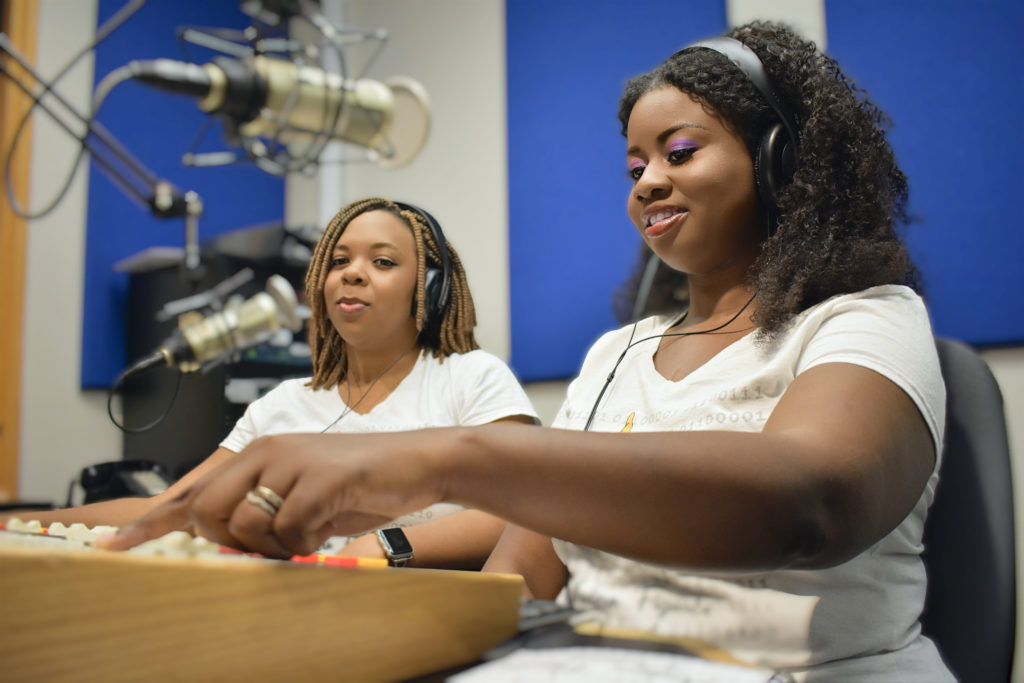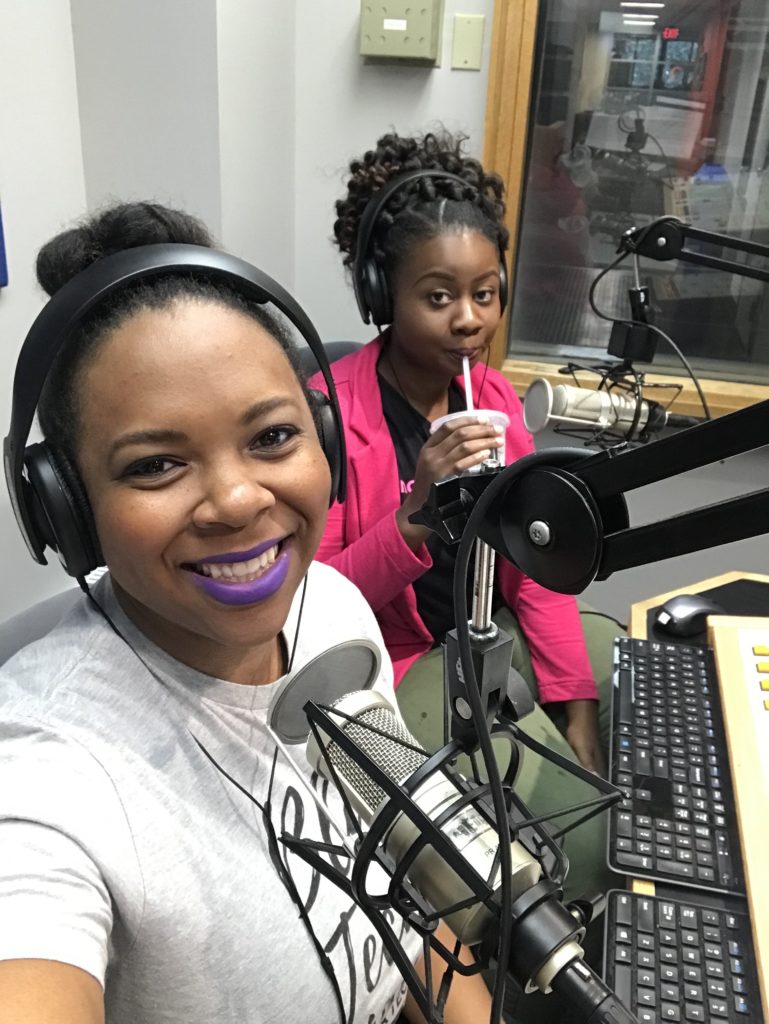
Not hidden but modern
U-M’s only Black American woman to graduate with a PhD in computer science and engineering is driving change within the University of Florida and scaling her influence with a podcast.

U-M’s only Black American woman to graduate with a PhD in computer science and engineering is driving change within the University of Florida and scaling her influence with a podcast.
The 2016 movie Hidden Figures showed that Black women have been in tech since before the space race. But four years ago, Kyla McMullen (MSE CSE ‘07, PhD ‘12) and her collaborators saw the need to make their modern counterparts more visible–both to the world and to each other. So she started Modern Figures, a podcast that elevates the voices of Black women in computing. The show, hosted by McMullen and Jeremy Waisome, an assistant professor of engineering education at the University of Florida, recently celebrated its 50th episode.
McMullen is the first and, a decade on, only Black American woman who has earned a PhD in computer science and engineering from U-M. Today, she’s an associate professor in the University of Florida’s computer and information science and engineering department. She sees Modern Figures as a way to share experiences and how-to knowledge for those navigating academia and tech without the support enjoyed by many of their peers.

“We find that the huge make-or-break points with graduate students, one is isolation, but two, there are so many unwritten rules that you’re just kind of expected to know,” McMullen said. “So we make the crazy way straight.”
Supported by the National Center for Women and Information Technology, the Institute for African American Mentoring in Computer Science and the Computing Research Association Committee on Widening Participation, the podcast has enabled McMullen to virtually mentor tech students and colleagues on a larger scale.
McMullen knows the importance of a good mentor first-hand; she benefited from such a resource in U-M’s computer science and engineering program, when she was struggling with an initial PhD research lab that wasn’t a good fit for her.
She found an ally in Gregory Wakefield, now a U-M associate professor emeritus of electrical engineering and computer science. Wakefield was the professor that students in any kind of academic trouble could come to for help figuring out solutions. He introduced McMullen to an area of acoustics that she’s still passionate about: 3D sound, or using signal processing to process sound to mimic the way it naturally travels in the air.
These days, McMullen is the one who students seek out for advice and support–even by students who aren’t in her class or lab. Finding time for mentoring can be a challenge, since the academic system doesn’t reward it in the same way it rewards research and teaching. It’s a problem for many faculty of color and women, who often shoulder a disproportionate share of the mentoring load. But McMullen undertakes it as a labor of love.

“It tugs at your heartstrings,” said McMullen. “When you show that you care, it really makes a difference for students.”
McMullen is also working to find ways for academia to provide more support to under-resourced students. Funded by a $1 million grant from the National Science Foundation, she’s working with Waisome and University of Florida colleagues Juan Gilbert and Christina Gardner-McCune to explore a support system for students in the PhD program who have low-income backgrounds. Because this kind of service work comes with money and produces research papers, it’s a way to circumvent the professional penalty that professors who spend a lot of time on service typically pay.
“Sometimes it’s frustrating because we have 3 buckets that we have to fill: we have research, teaching and service,” she said. “But when I think about my own self-fulfillment, I just get more out of helping the students. To me, it’s an investment that has an exponential reach. I can craft a presentation to get 20 people the information they need, and they go off and do 20 different excellent things.”
McMullen is also developing a real-time 3D audio system that uses infrared signals from wearable sensors to help first responders like firefighters navigate and locate people in areas of poor visibility. She hopes to test it with firefighters next year, though her graduate students have already been experimenting with the system in a practice facility for first responders.